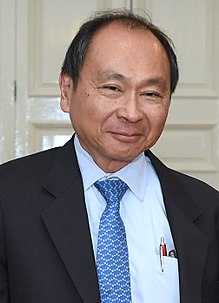
In the world of immigration politics, the might of the agribusiness lobby is legendary. Exhibit A is the 1952 "Texas proviso", a legislative card trick with which Congress outlawed "harboring" or "concealing" an illegal immigrant, only to add a provision to give a pass to those who hired illegal immigrants. That chicanery anticipated Big Ag's triumph in shaping the 1986 Immigration Reform and Control Act (IRCA). That landmark law, still on the books, pretended to impose firm limits. But in reality, it ensured that illegal immigrant workers would continue to flow into vast fields of vegetables and fruits as reliably as the water from federally provided irrigation projects.
Now political scientist Francis Fukuyama has illuminated a force that rivals the clout of Big Ag. His new book is Identity: The Demand for Dignity and the Politics of Resentment. It explains the long drift of the left away from working-class demands for limits on immigration.
Many Democrats, typified by Sen. Kamala Harris of California, now regard illegal immigrants as one of many marginalized groups needing protection from the oppression of government authority imposed by a racist white majority. They see the "undocumented" as part of the noble, necessary struggle for diversity, inclusiveness, and equality.
Fukuyma explains how liberal battle lines that once formed along lines of class struggle have shifted to a broad front occupied by battalions of aggrieved identity groups. The book is concise, a compelling read. Here are a few excerpts:
- "The problem with the contemporary left is the particular forms of identity that it has increasingly chosen to celebrate. Rather than building solidarity around large collectivities such as the working class or the economically exploited, it has focused on ever smaller groups being marginalized in specific ways."
- "Many activists came to see the old working class and their trade unions as a privileged stratum with little sympathy for the plight of groups such as immigrants or racial minorities worse off than they were. ... In the process, the old working class was left behind."
- "The left's agenda shifted to culture: what needed to be smashed was not the current political order that exploited the working class, but the hegemony of Western culture and values that suppressed minorities at home and developing countries abroad."
Fukuyama does not absolve the right from responsibility for the centrifugal forces gripping our politics and enervating the sense of a unifying American identity. He is troubled by the white nationalism that has emerged in response to extremism on the left. He sees President Trump as symptomatic of the widening divide and deepening dysfunction. "Since his rise, white nationalism has moved from a fringe movement to something much more mainstream in American politics," Fukuyama writes.
Fukuyama observes with alarm that:
[T]he right has adopted the language and framing of identity from the left: the idea that my particular group is being victimized, that its situation and sufferings are invisible to the rest of society, and that the whole of the social and political structure responsible for this situation (read: the media and political elites) needs to be smashed. Identity politics is the lens through which most social issues are now seen across the ideological spectrum.
